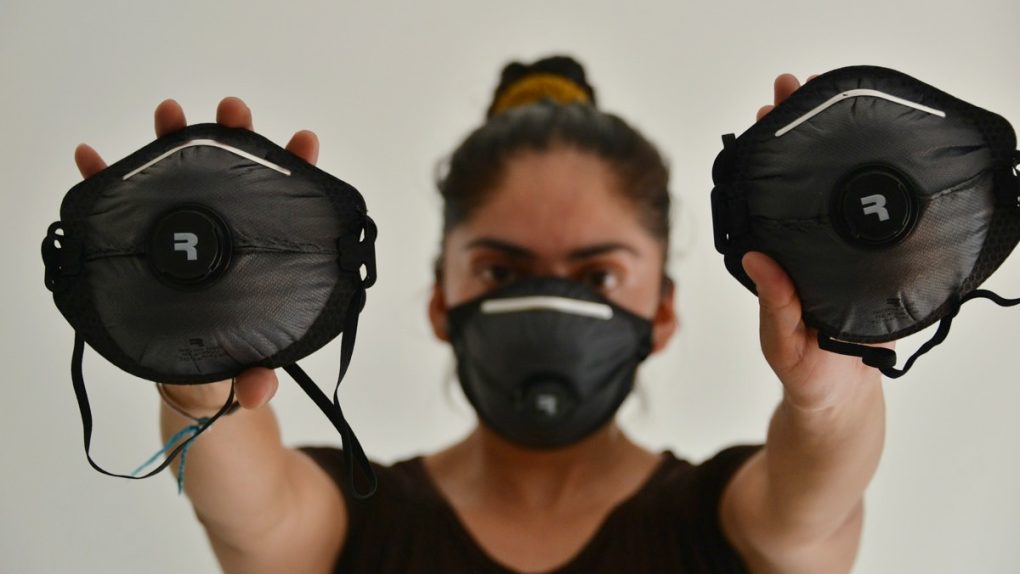- Coronavirus face masks are critical to stopping the novel virus, a new study confirms, referencing recent work that shows how easily the COVID-19 pathogen can travel in the air and infect other people.
- Face masks can block invisible particles in aerosols and reduce coronavirus transmission, and they’re also effective at stopping the asymptomatic carriers from spreading the virus.
- The use of face masks is highly advised in communities that reopen their economies, and they’re absolutely crucial until better COVID-19 treatments are available.
We’ve come a long way in the last two months when it comes to the use of face masks against the novel coronavirus. As more evidence started piling in about the SARS-CoV-2’s ability to float in the air for longer periods and reach distances over 6 feet, the CDC changed its stance on the use of face masks in early April when it started advising people to use any kind of face protection when going out. It became clear that authorities were trying to prevent panic and face mask shortages at a time when healthcare professionals were complaining about the lack of proper personal protective equipment.
In the weeks that followed, more studies came out showing how easily the coronavirus can spread. We’ve learned that a single person infected as many as 52 choir members in under 3 hours during a practice session in mid-March. Other researchers proved that talking loudly is enough to eject tiny droplets that can contain pathogens and infect other people. As that happened, we’ve started witnessing a strange phenomenon as well, a rebellion against the use of face masks that even includes prominent figures like Trump.
The bottom line is that face masks are a key weapon against the virus, and a new study makes it clear that it’s critical to wear them anytime you’re outside your home.
The new study analyzes data from other research to drive home the point that aerosol transmission can be a real problem when it comes to developing protocols for fighting COVID-19, and face masks are the only way to reduce the transmission rate.
Scientists from US San Diego explained in the paper published in Science that “a large proportion of the spread of coronavirus disease 2019 (COVID-19) appears to be occurring through airborne transmission of aerosols produced by asymptomatic individuals during breathing and speaking.” These aerosols can accumulate and remain infectious in indoor air for hours, that’s why the use of masks is necessary. “For society to resume, measures designed to reduce aerosol transmission must be implemented, including universal masking and regular, widespread testing to identify and isolate infected asymptomatic individuals,” the researchers said.
“Masks do filter things, and filtering does reduce the spread of disease,” Dr. Kim Prather from UCSD Scripps Institution of Oceanography and an author of the study told ABC10 News. “That we know.”
The researchers compiled articles that referenced the latest COVID-19 studies, including data that says a cough or sneeze can propel larger droplets more than 20 feet and create thousands of aerosol particles. But invisible aerosols also come from asymptomatic patients who can still spread the virus. A study from the CDC said recently that as many as 35% of patients do not show symptoms. A different paper explained that 81% of COVID-19 patients aboard a cruise ship were asymptomatic — it all started with a single patient, and the infection spread to nearly 60% of the people on board over the course of a month.
“They don’t have a fever, they’re not coughing, they’re not sneezing,” Prather said. “But when they’re talking, they can produce thousands of aerosols out in their breath, and infect people for days.” She added, “You wear a mask not to protect yourself. You wear a mask because you’re being thoughtful and protecting other people.”
The study also looks at epidemiological data from Taiwan, comparing the country with the state of New York. Both regions have a similar population, 24 million vs. 20 million, but they had very different experiences when it came to COVID-19 caseloads. Taiwan got its first case on January 21st. As of May 21st, the country had 441 total cases and 7 deaths. New York got its first case on March 1st. Since then, more than 353,000 people caught the illness, and 24,000 people have died.
Taiwan never implemented a lockdown like New York did, but “the Taiwanese government enacted a set of proactive measures that successfully prevented the spread of SARS-CoV-2, including setting up a central epidemic command center in January, using technologies to detect and track infected patients and their close contacts, and perhaps most importantly, requesting people to wear masks in public places.”
Prather explained to ABC that face masks that fit your face properly will protect you the best, as opposed to masks that leave gaps between the contours of your face, like bandanas. The doctor also made it clear that no mask can block 100% of aerosol particles. But it’s still better to block some of them than none.
“We can get back to a functioning society if we wear masks,” she said. “Until tests come in to play or a vaccine comes into place, it’ll buy us time, and we can reduce the spread if we take this seriously.”








